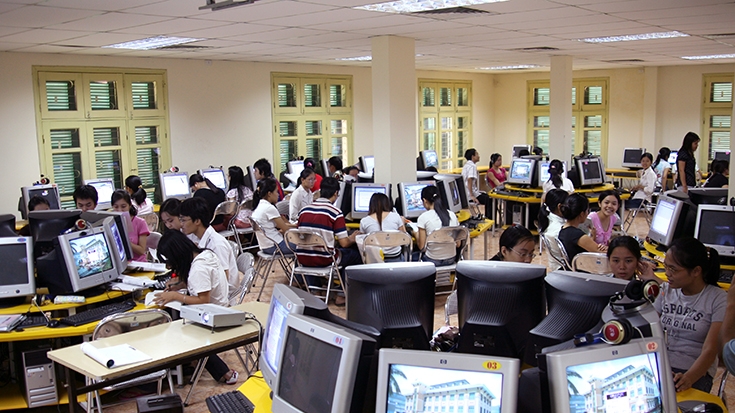Challenge
Vietnam’s HE system over the past two decades rapidly expanded, and outpaced the evolution of the regulatory and legal framework (101 institutions in 1987 to 419 in 2012). Vietnam needed to avoid letting the HE system grow haphazardly, and setting up an organized system needed to be a priority.
Vietnam was spending a significant share of its public resources on HE but was not meeting the increased demand. There was a recognized need in reforming public financing to increase the efficiency, effectiveness and equity of the government’s budget, as well as improving transparency and accountability in public financial management in the HE sub sector. Finally the continuing growth of HE enrolment put tremendous pressures on the quality of teaching, research and public service.
Solution
The program was comprised of three single-tranche Development Policy Credits to support a bold and comprehensive higher education reform effort, putting in place important policies to strengthen governance, rationalize financing, and improve the quality of teaching and research. It also enhanced accountability for performance and transparency in financial management in the sector.
Critical pieces of legislation and policies to cement accomplishments have advanced, including the Higher Education Law. The findings of implementation assessment of the series of operations showed that the policy measures adopted have had overall positive impacts on the development of the higher education sector, providing legal basis for higher education institutions to be more proactive and accountable in carrying out their academic, financial and human resource duties. The adopted policy measures have also resulted in a significant transfer of decision-making authority to the institutions from the central ministry.
Results
• Governance: The operations supported the introduction of a new legal framework with the highest legislation being the HE Law, and as a result:
- Since 2012, 100% of HEIs have been able to decide on the number of enrollees ;
- Since 2011, 100% HEIs can decide the content of their training programs and open new training programs as they wish;
- 339 joint training programs are being delivered together with reputable universities worldwide.
• Financing: With policies supported by the operations:
- By 2012/2013, 39% of HEIs’ revenue has been generated from tuition fees;
- All institutions under Ministry of Education and Training produce annual financial reports; and
- Until academic year 2011/2012, 2.5 million loans worth $1.2 billion have been granted to students representing about 75% of the student body.
• Quality improvement and assurance: Policies have been developed to improve quality, move towards a credit based training system, and require institutions to disclose information. As a result:
- By the academic year 2014/2015, 179 institutions have moved to credit based training;
- 301 institutions have established internal quality systems; and
- Since academic year 2013/2014, two independent accreditation centers were set up

